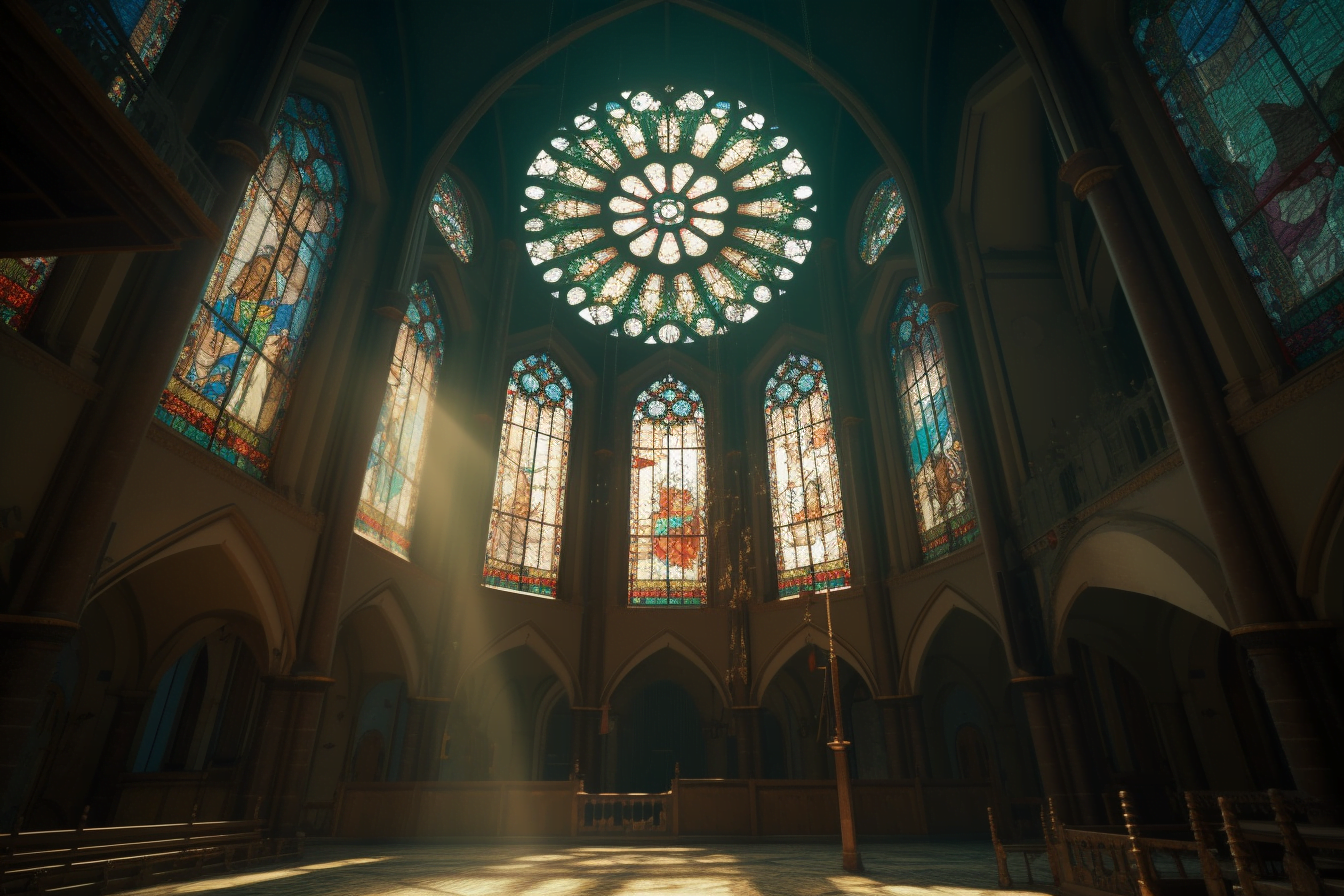The Catholic liturgy has its roots and foundations in the Bible, finding its basis in various passages and principles present in the Scriptures. Below, I will mention some aspects of the Catholic liturgy that have their biblical foundation:
- Act of Contrition: With the act of contrition, Catholics recognize our sinful nature and confess it before our brothers and sisters. This act finds its biblical support in passages such as Psalm 51:3-4, where King David pleads to God for forgiveness and cleansing of his sins, and in Luke 18:13, where the tax collector asks God for mercy, recognizing himself as a sinner. Following these examples, in the act of contrition, we humbly express our repentance and ask God for forgiveness for our faults, joining the tradition of seeking reconciliation and mercy through a contrite heart.
- Credo: Catholics proclaim their beliefs with the Nicene Creed, which finds its biblical support in passages such as John 1:1-3, confirming the divinity of Jesus Christ, and Matthew 28:19, speaking of the Holy Trinity. It is also supported by Ephesians 4:4-6 and Ephesians 2:20, which speak of the unity of the Church as one apostolic body. The Nicene Creed represents a fundamental statement of faith that unites believers in their core beliefs of Christianity.
- Liturgy of the Word: The Catholic liturgy includes the reading and proclamation of the Holy Scriptures, and this practice originates from the importance Jesus placed on the Word of God. In Luke 4:16-21, Jesus reads and explains the Scriptures in the synagogue of Nazareth, showing the significance of reading and teaching the Word of God within the community of believers.
- The Psalms: The Psalms, which form part of the Old Testament, are widely used in Catholic liturgy as an expression of praise, supplication, and thanksgiving to God. Jesus also recited the Psalms in His life and ministry.
- Liturgical Prayer: In Matthew 6:9-13 and Luke 11:2-4, we find the model of prayer that Jesus taught His disciples, known as the Lord’s Prayer. This prayer is included in the Catholic liturgy as a communal and universal prayer.
- The Offertory: In the Catholic Mass, the collection of offerings is based on biblical principles of generosity and gratitude. According to 1 Corinthians 16:1-2, the faithful contribute regularly in proportion to their means to support the needy and the work of the Church. Furthermore, 2 Corinthians 9:7 emphasizes that giving should be voluntary and joyful, not out of obligation. The collection is an opportunity to express commitment to the faith community and support the evangelizing and service mission of the Church.
- The Redemptive Sacrifice of Christ: Catholic liturgy highlights the redemptive sacrifice of Christ on the cross, which finds its foundation in various passages from the New Testament, such as John 3:16, speaking of God’s love for the world and the giving of His Son for our salvation.
- The Eucharist: The heart of Catholic liturgy is the celebration of the Eucharist, which has its basis in the accounts of the Last Supper of Jesus with His disciples. In the Gospels of Matthew (26:26-29), Mark (14:22-25), Luke (22:14-20), and 1 Corinthians (11:23-26), we find the institution of the Eucharist, where Jesus takes bread and wine, blesses them, breaks them, and gives them to His disciples, saying they are His body and blood. The Eucharistic liturgy is a living memorial of this event and is celebrated in every Holy Mass.
- Sunday Celebration: The practice of gathering for the Sunday celebration, the Eucharist, is based on the example of the early Christians who met on the first day of the week to break bread, as mentioned in Acts 20:7 and 1 Corinthians 16:2.
The liturgy is the heartbeat of the Christian soul, the communion of the human with the divine. It is the altar where humanity and the eternal embrace, the sacred bond that unites us with the transcendent Mystery. Every gesture, every word becomes a sacred echo that resonates deep within our being.
It is the sublime encounter with the sacred, the burning desire to meet the Creator in the dance of faith. The liturgy is the golden key that opens the doors of heaven on earth, a sacred encounter with the divine presence that fills us with peace and hope.
Thus, in the Catholic liturgy, the heart finds its home, and the soul soars in celestial flight. It is the whisper of the Holy Spirit, the song of angels, the melody that envelops us in the loving embrace of our heavenly Father. In every ritual, in every sacrament, we immerse ourselves in the ocean of divine grace and discover that the liturgy is more than an act; it is a sacred dance between the human and the divine.

